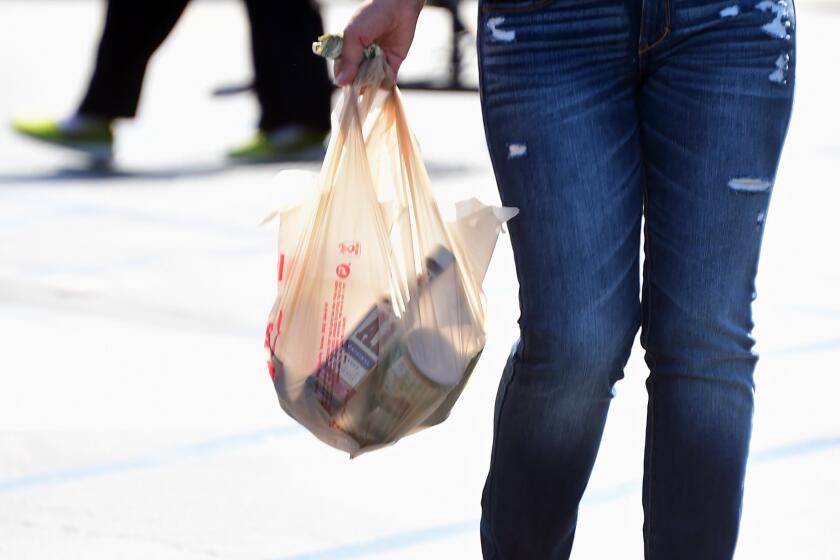The COVID-19 pandemic is unleashing a tidal wave of plastic waste
SINGAPORE â When he stepped onto a beach on Hong Kongâs uninhabited Soko Islands, Gary Stokes was surprised to find â amid the discarded water bottles, shopping bags and usual piles of plastic waste â a new type of garbage washing ashore.
Masks. Dozens and dozens of disposable masks.
On that overcast morning in late February, just weeks after Hong Kong had recorded its first coronavirus case, the environmental activist collected more than 70 discarded masks from a beach slightly longer than a football field. In the months since, Stokes has found many more washed up onto other islands far from central Hong Kong.
The coronavirus pandemic has brought a dramatic increase in the use of plastic, the main component in masks, gloves, hand sanitizer bottles, protective medical suits, test kits, takeout containers, delivery packaging and other items central to our new, locked-down, hyper-hygienic way of life.
The disposal of such items is yet another troubling consequence of a crisis that has devastated economies and wracked healthcare systems. Environmental groups warn that all that material â though potentially life-saving â could overwhelm cities around the world where waste collection and recycling strategies have been short-circuited by lockdowns.
The deeper worry is that COVID-19 will reverse the momentum of a years-long global battle to cut down on single-use plastic.
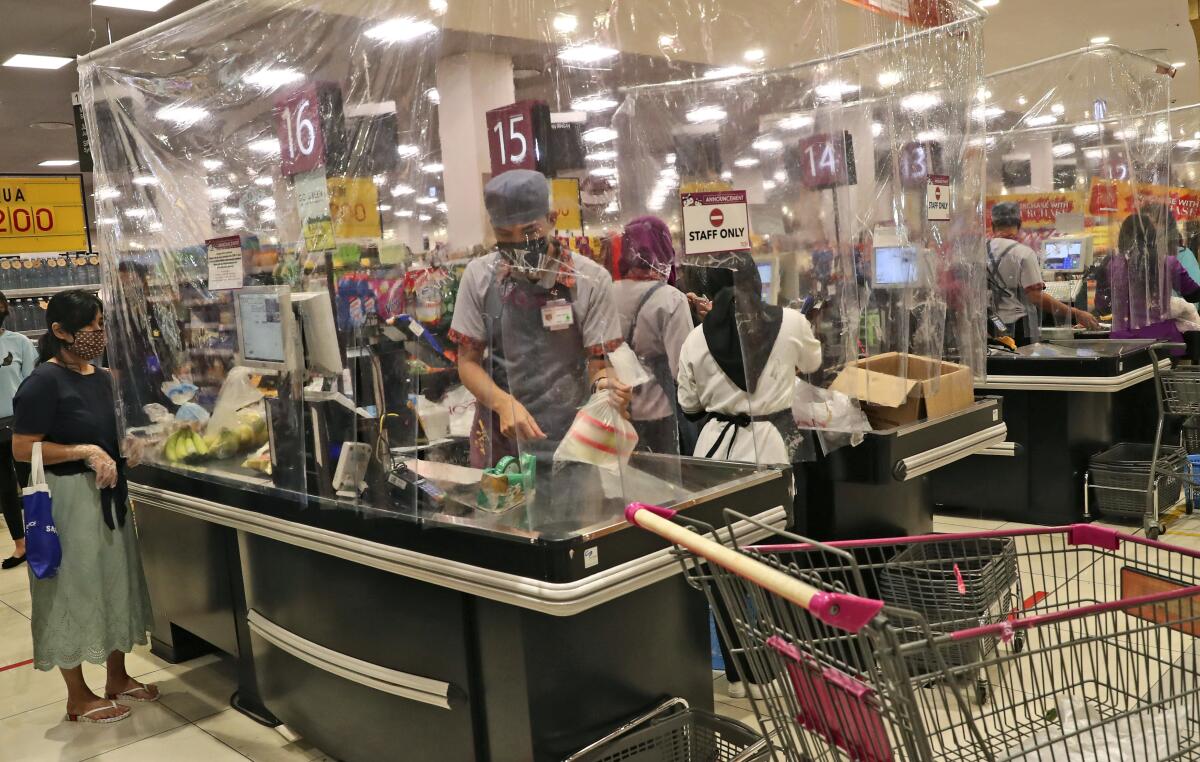
âI understand people are afraid because they donât know whatâs going on with this virus, but itâs just a major setbackâ for environmental protection, said Stokes, cofounder of Oceans Asia, an advocacy group. âItâs almost just an excuse for going back and using plastic on everything.â
A glut of new, throwaway plastic is apparent worldwide, from California, where Gov. Gavin Newsom temporarily lifted a ban on single-use grocery bags over concerns the virus could be transmitted via reusable bags, to Asian cities that struggled to manage their trash even before the pandemic.
California suspended its pioneering plastic bag ban because of coronavirus fears about reusable bags. That canât be a permanent backslide.
In fast-growing Asian economies where waste collection and recycling systems have failed to keep pace with rising amounts of rubbish, used plastic is often dumped near waterways or incinerated, fouling the air, water and soil.
Even Hong Kong, one of the wealthiest cities in the world, pours 70% of its waste into landfills.
Coming into this year, many nations had promised to reduce plastic use. The pandemic has forced some to shelve those plans; the World Bank warns that COVID-19, at least for now, âseems to be shifting the tide toward single-use plastics.â
Thailand, which had banned disposable plastic bags at major stores in January and planned to slash plastic waste in 2020, now expects to see it rise by as much as 30%. Bangkok alone consumed 62% more plastic in April than it did 12 months earlier â most of it contaminated food packaging that isnât easily recycled â according to the Thailand Environment Institute.
Researchers in Bangladesh estimated that the country produced nearly 16,000 tons of hazardous plastic waste during the first month of its coronavirus lockdown.
During an eight-week lockdown that eased June 1, Singaporeâs 5.7 million residents generated an additional 1,470 tons of plastic waste from takeout packaging and food delivery alone, according to a survey. Discarded masks are often spotted on sidewalks, a once unimaginable sight in the prim city-state, where littering carries heavy penalties.
âSeeing that social distancing will likely still be the norm in the next few months, we will see a continued overall increaseâ in disposable plastic waste, said Hai Lin Pek, executive director of the environmental group Zero Waste Singapore.
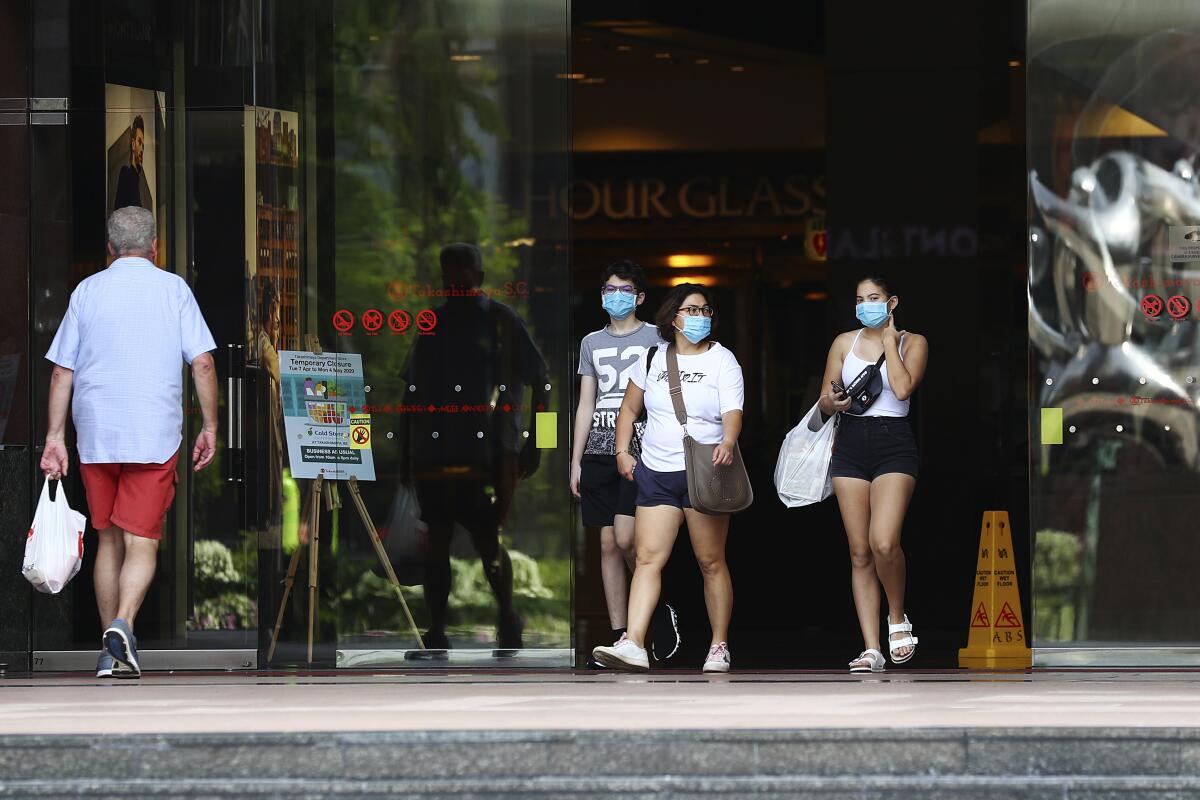
Some retailers, including Starbucks, have stopped allowing customers to bring in reusable cups, containers or shopping bags, fearing they could be vectors for the coronavirus.
Medical experts believe reusable materials pose no additional risk, as long as they are routinely sanitized. But industry groups have sought to capitalize on health concerns, arguing that âplastics are essential in the effort to stop the spread of this virus.â
âWe hope the spikes in use of disposables in certain sectors are only temporary, and would not reverse hard-won gains to reduce plastic pollution,â said Von Hernandez, a Philippine activist with Break Free From Plastic, an advocacy group.
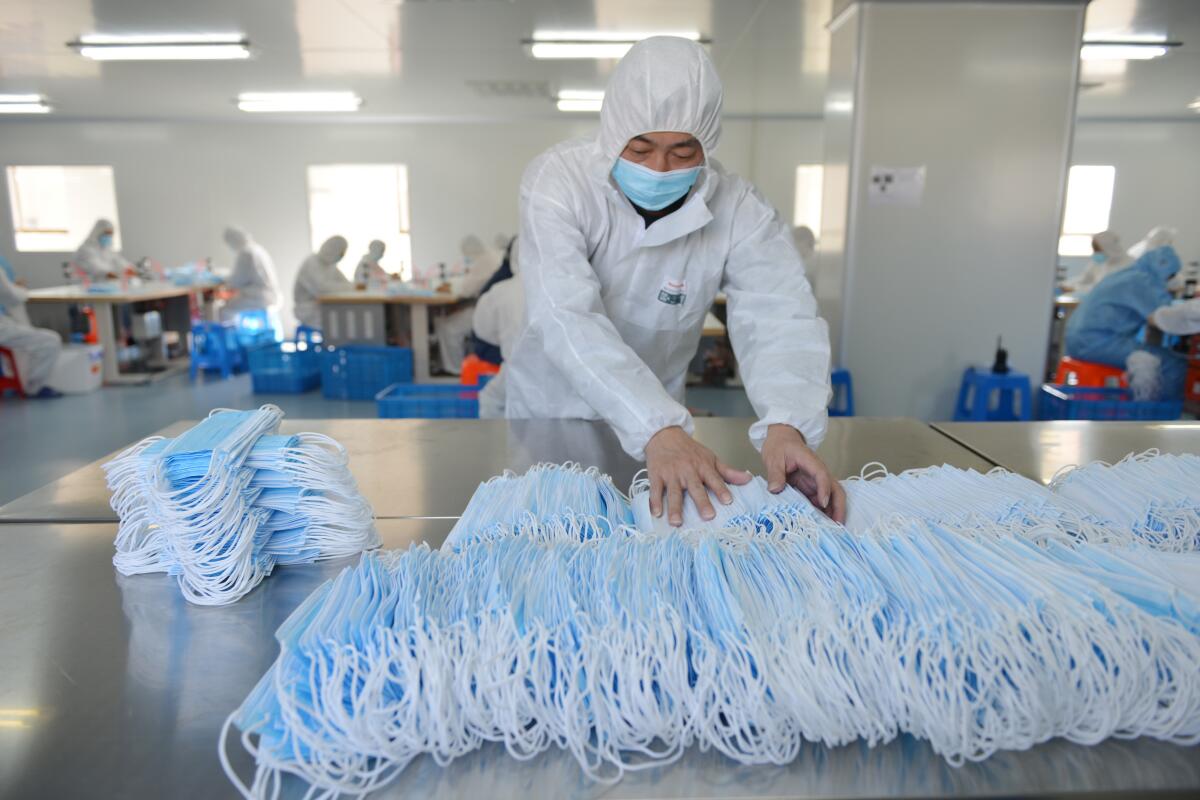
Cities also are struggling to handle a surge of infectious medical waste from hospitals and health facilities treating coronavirus patients. The Asian Development Bank projects that Manila, a city of 14 million, is generating an additional 309 tons of medical waste daily â including disposable plastic gowns, masks and surgical gloves â but warns that âfew cities have the capacity to deal withâ the excess.
In the absence of well-designed recycling systems, many global cities rely on informal networks of waste pickers to collect and sort trash. Millions of these workers have been barred from doing their jobs during lockdowns, fueling economic distress while more plastic is routed to landfills and incinerators.
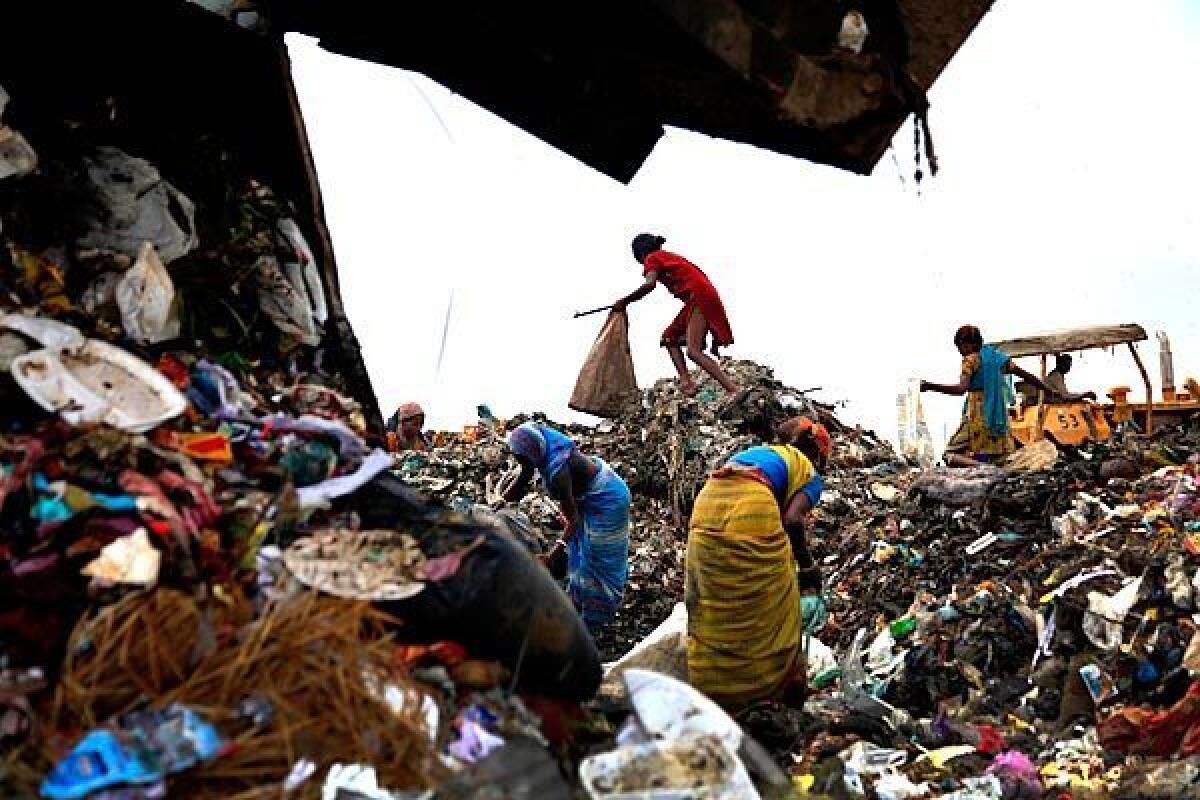
As the virus continues to surge across parts of southern Asia, some see an opportunity to invest in reusable materials.
Muuse, a startup, is piloting a food delivery service in Singapore that uses stainless steel cups and bamboo boxes. Customers return the items, which are washed and sanitized before the next delivery.
âSo many customers were becoming frustrated by the amount of single-use delivery packaging piling up in their apartments,â said founder Brian Reilly.
Single-use sachets have helped low-income consumers but cannot be easily recycled, and are spilling into the oceans.
As governments deploy stimulus funds to help businesses weather the pandemic, opponents of single-use plastic see a chance to build local companiesâ capacity to recycle plastic into new commodities. Worldwide, studies suggest that less than 10% of the plastic ever produced has been recycled.
âWith plastic pollution, the conversation needs to shift away from an environmental problem to an economic development and rebuilding opportunity,â said Rob Kaplan, head of Singapore-based Circulate Capital, an investment fund that recently announced it would spend $6 million to boost two small-scale plastic recyclers in India and Indonesia.
âWaste and recycling have been under-invested in for 20 years. Now is an opportunity to start.â
More to Read
Sign up for Essential California
The most important California stories and recommendations in your inbox every morning.
You may occasionally receive promotional content from the Los Angeles Times.
